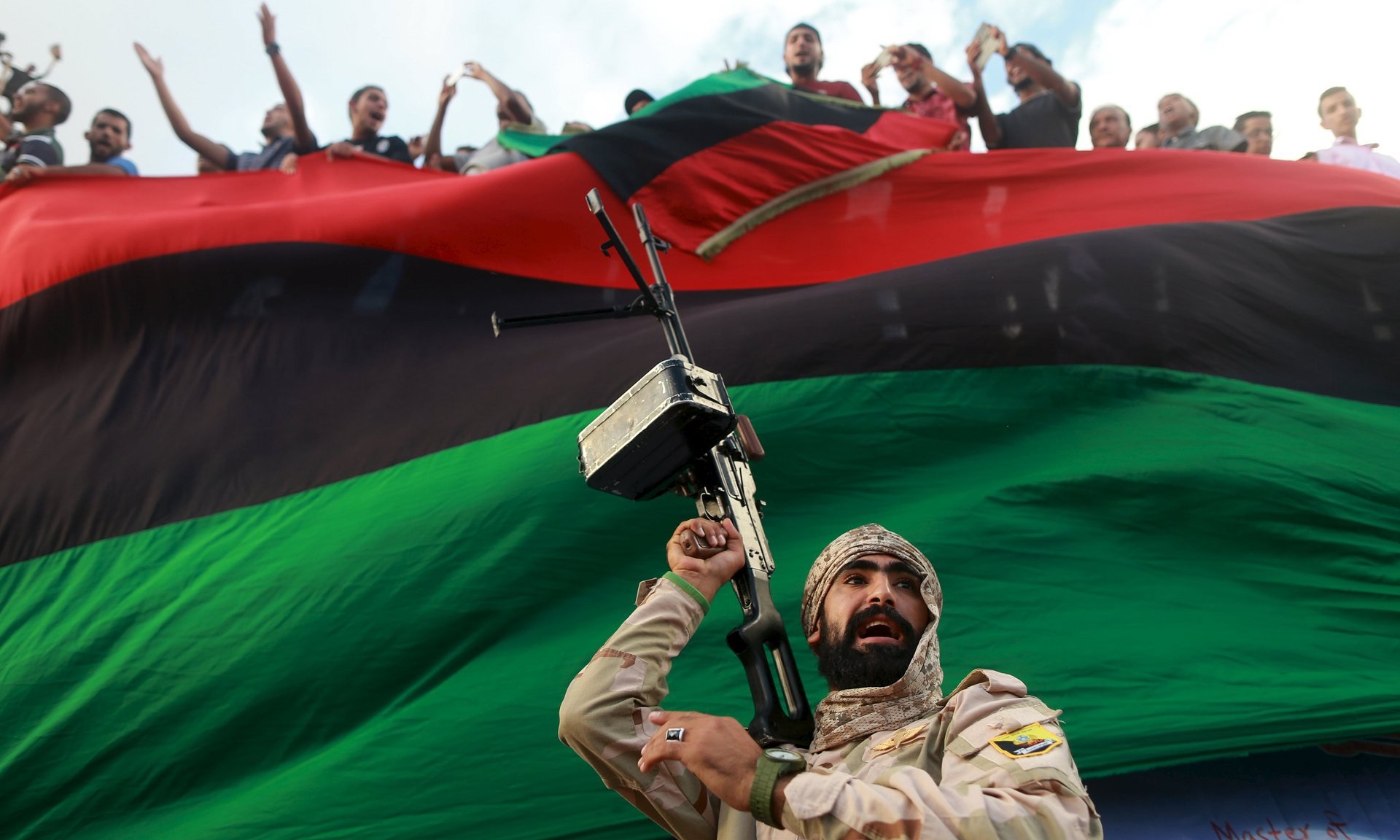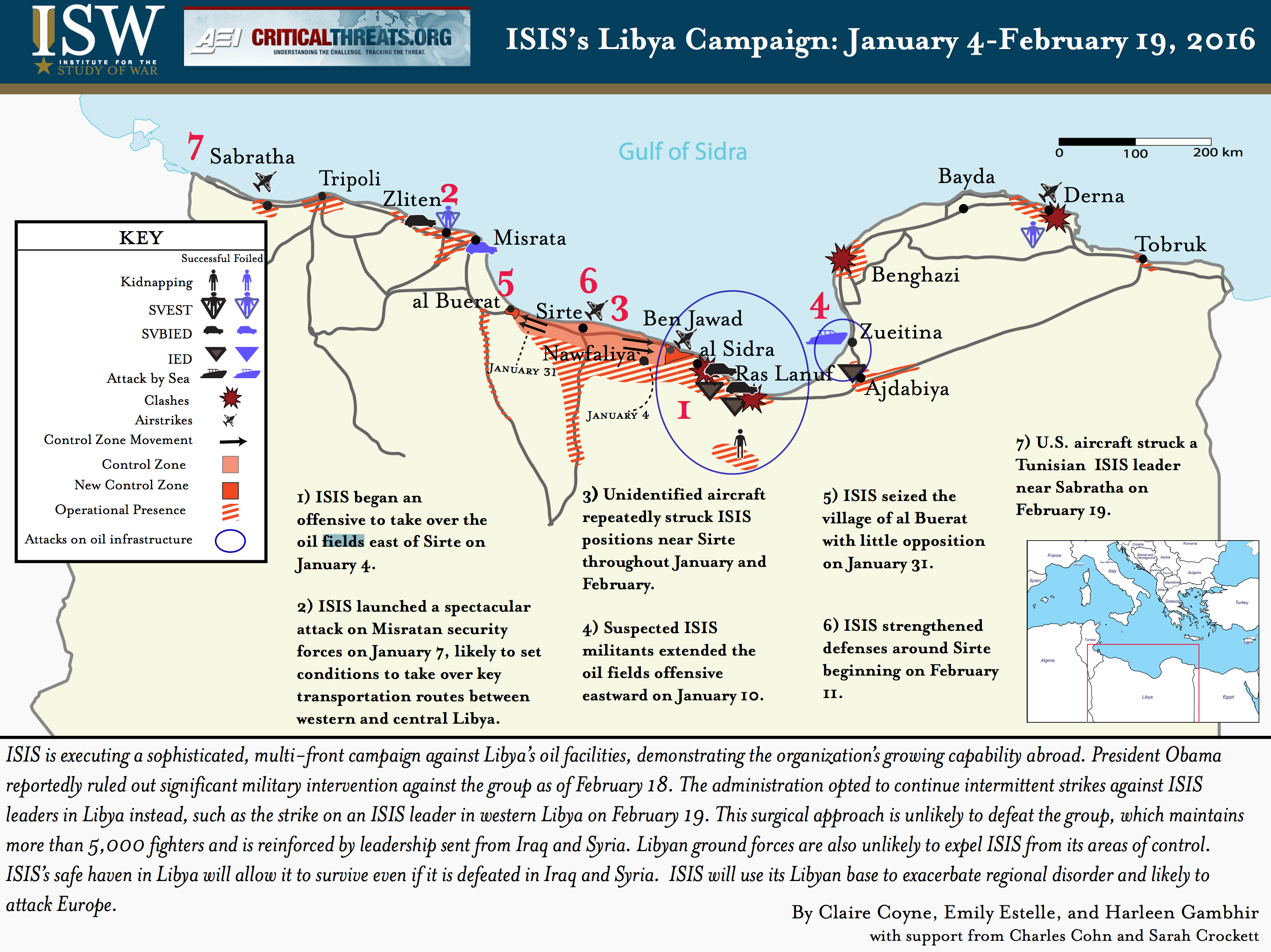Date: Sun, 13 Mar 2016 22:30:28 +0100
The Islamic State in Libya

Photograph: Esam Omran Al-Fetori/Reuters
Written by Matthew Barbari
On March 13th, 2016
When talking about the fight against the Islamic State (ISIS), most people think about the conflicts happening in Syria and Iraq. However, the fight is not limited to those countries. Libya, another country that descended into chaos and civil war following the 2011 Arab Spring has experienced the growth of ISIS’ influence. Since the overthrow of Muammar Gaddafi, Libya has failed to achieve a modicum of stability, with two competing sides vying for control of the country in a bloody civil war.
Libya’s is becoming a breeding ground for Islamic State recruitment. Taking advantage of the instability in the country to find willing soldiers, ISIS repeated the strategy used in Syria and Iraq. The militant group’s growing activity has caught the attention of U.S. officials who see no other option than to address the Islamic State threat in Libya with military action.
On March 8, the Pentagon presented possible plans of action to the White Houseinvolving some 40 targets within Libya that have been identified as Islamic State outposts. These targets include training and recruitment camps as well as other installations controlled by ISIS.
This comes after the Obama administration’s announcement that it still seeks to form a unity government in Libya, combining both opposing factions within the country. Indeed, both the Internationally Recognized Government and Libya Dawn view themselves as the legitimate authority in the post-Gaddafi era and reject the unity government proposal. Like most countries that experienced upheaval during the Arab Spring, Libya was not able to transition into a Western-style democracy as the U.S. had hoped.

Source: Institute for the Study of War
Furthermore, attacks against the Islamic State could be complicated due to the fighting amongst rebel groups. Bombing campaigns could result in massive collateral damage while supplying weapons to the Libyan forces could not that guarantee that they would be used to combat ISIS rather than to prolong the civil war. The instability in the country also limit the scope of attacks against Islamic State forces, as it would require a functional Libyan government to completely root out ISIS influence from the country. This is precisely why ISIS chose to expand its activity in Libya as the volatile situation makes it difficult for foreign forces to mount effective offensives against the group.
Reports from the U.S. defense officials help to shed light on the Pentagon’s fears toward the growing Islamic State presence in Libya. They explain that many of the top ISIS leaders have moved away from Syria and Iraq and to Libya, establishing their newest headquarters from where they help organize and lead forces. The Islamic State also sees Libya as a very lucrative battlefield due to the country’s massive oil reserves. Like it has done in Iraq and Syria, the group could use the revenue of oil sales on the black market to finance its operations, increasing its resilience in the country but also prolonging the fight against ISIS in other parts of the world.
With both sides of the civil war still fighting each other and the proposed UN peace deal still being dragged along, the Islamic State continues to build up their forces and support in Libya unabated. This could allow to group to survive should it suffer a decisive defeat in Iraq and Syria in addition to creating new branches in the rest of North Africa especially in Tunisia and Egypt.
While many U.S. officials celebrated the overthrow of Muammar Gaddafi; many would see the instability and chaos that Libya has been thrown into as bad as, if not worse, than the dictator’s brutal regime. However one thing is certain: the U.S. cannot allow Libya to become another stronghold for the Islamic State.